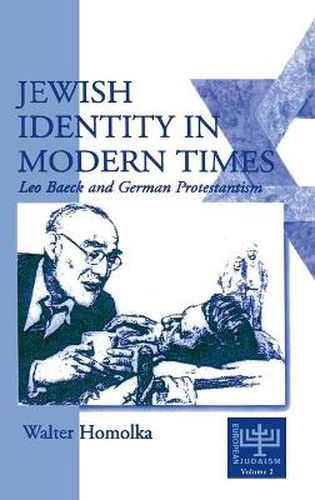Readings Newsletter
Become a Readings Member to make your shopping experience even easier.
Sign in or sign up for free!
You’re not far away from qualifying for FREE standard shipping within Australia
You’ve qualified for FREE standard shipping within Australia
The cart is loading…






This title is printed to order. This book may have been self-published. If so, we cannot guarantee the quality of the content. In the main most books will have gone through the editing process however some may not. We therefore suggest that you be aware of this before ordering this book. If in doubt check either the author or publisher’s details as we are unable to accept any returns unless they are faulty. Please contact us if you have any questions.
There is no doubt about Baeck’s contribution to Jewish theology in the twentieth century: it has been significant. Without ever departing completely from the ancient wellsprings of orthodoxy, he was a studious observer of the intellectual currents of his time and ambience; under theinfluence of liberal Jewish theology, he drew on and reworked those currents, weaving them into his own theological thought. A special aspect of Baeck’s work is that he remained in critical confrontation with Christianity throughout his life, acting as a kind of builder of bridges between the two faiths. (From the Introduction.) It is on this aspect that the author focuses his study inwhich he examines Leo Baeck’s critical evaluation of Martin Luther and Protestantism. At the same time Homolka shows how close the intellectual links between liberal Christian and liberal Jewish theology had become before the Holocaust: both sides attempted a new definition of the essence of their faiths and were searching for a new identity in an increasingly pluralistic and secular society.
$9.00 standard shipping within Australia
FREE standard shipping within Australia for orders over $100.00
Express & International shipping calculated at checkout
This title is printed to order. This book may have been self-published. If so, we cannot guarantee the quality of the content. In the main most books will have gone through the editing process however some may not. We therefore suggest that you be aware of this before ordering this book. If in doubt check either the author or publisher’s details as we are unable to accept any returns unless they are faulty. Please contact us if you have any questions.
There is no doubt about Baeck’s contribution to Jewish theology in the twentieth century: it has been significant. Without ever departing completely from the ancient wellsprings of orthodoxy, he was a studious observer of the intellectual currents of his time and ambience; under theinfluence of liberal Jewish theology, he drew on and reworked those currents, weaving them into his own theological thought. A special aspect of Baeck’s work is that he remained in critical confrontation with Christianity throughout his life, acting as a kind of builder of bridges between the two faiths. (From the Introduction.) It is on this aspect that the author focuses his study inwhich he examines Leo Baeck’s critical evaluation of Martin Luther and Protestantism. At the same time Homolka shows how close the intellectual links between liberal Christian and liberal Jewish theology had become before the Holocaust: both sides attempted a new definition of the essence of their faiths and were searching for a new identity in an increasingly pluralistic and secular society.